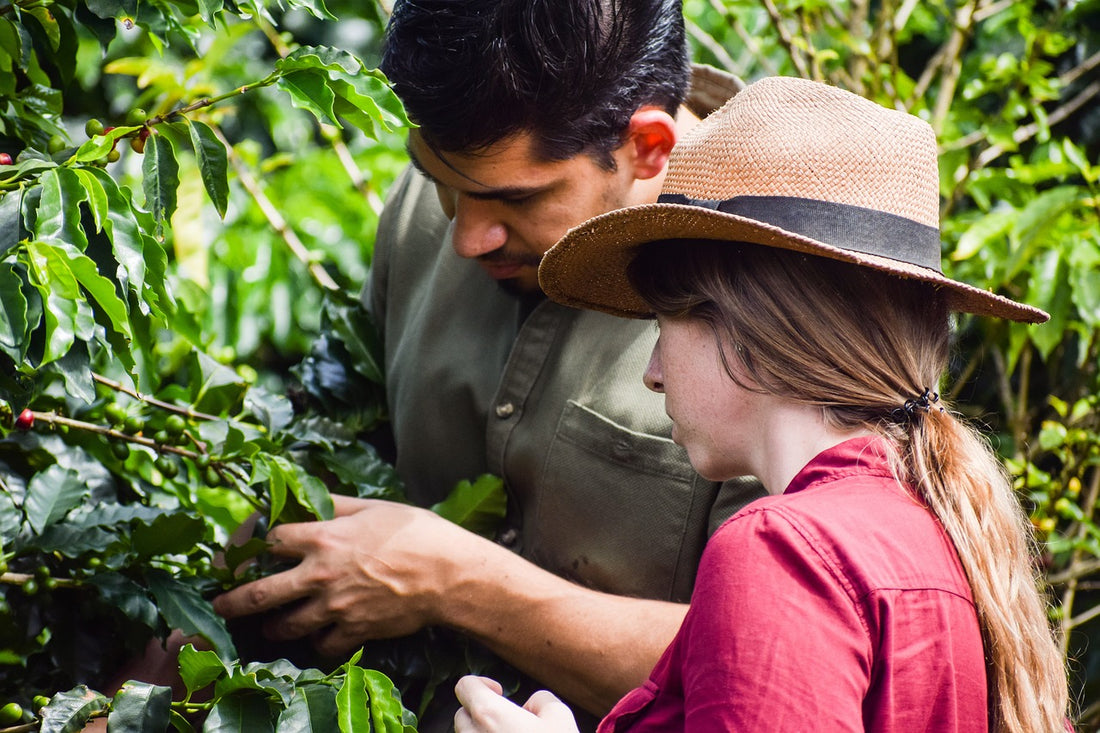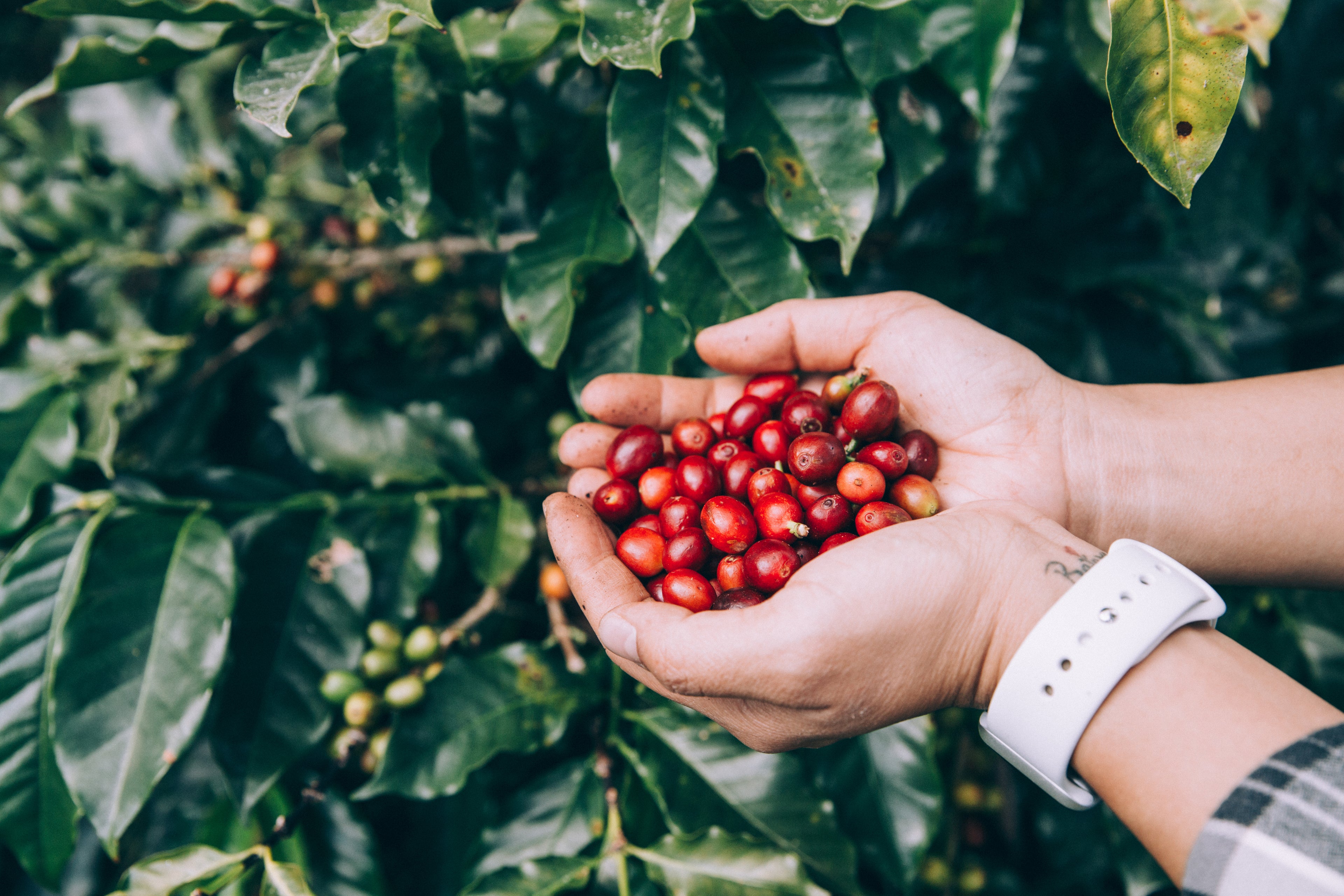
Interview with a Producer: Tracing the Roots of Specialty Coffee
Interview with Ana Pérez, owner of Finca Cerro Prieto (Dominican Republic)
Interviewer: Good morning, Ana. It's a pleasure to have you with us today. To start, could you tell us a little about your background and how you got involved in coffee cultivation?
Ana Pérez: Good morning! Of course, I'd be happy to. My journey with coffee began several years ago when I decided to follow in my family's footsteps in agriculture. However, my passion for coffee solidified when I had the opportunity to work on a coffee plantation in Central America during my university studies. That experience showed me the incredible world behind each cup of coffee and sparked a desire in me to dedicate my life to this noble beverage. After graduating, I decided to invest in my own farm, and thus Finca Cerro Prieto was born.
Interviewer: Fascinating journey, Ana. Now, moving on to the second point, could you give us an overview of Finca Cerro Prieto? We'd like to know more about its location, size, and growing conditions.
Ana Pérez: Of course. Finca Cerro Prieto is located in the mountains of the Dominican Republic, in a region known for its ideal climate for coffee cultivation. The farm spans approximately 100 hectares of fertile land and is situated at an optimal altitude for the cultivation of specialty coffee. Our privileged growing conditions, combined with our commitment to quality, allow us to produce coffee of the highest quality.
Interviewer: Impressive. Now, I'd like to delve into the coffee cultivation process at Finca Cerro Prieto. Could you explain how this process is carried out, from planting to harvest?
Ana Pérez: Certainly. The coffee cultivation process on our farm begins with the careful selection of seeds and proper soil preparation. Once the seedlings are ready, we transplant them to our fields and take care of them diligently, ensuring adequate supply of water and nutrients. Then, during the harvest season, our workers handpick the ripe beans, ensuring that only the best fruits are harvested.
Interviewer: It's a very detailed process. Could you describe the methods you use to process the coffee beans once harvested at Finca Cerro Prieto?
Ana Pérez: Of course. After harvest, the coffee beans undergo a meticulous washing process to remove the outer pulp and leave only the raw coffee bean. Then, the beans are sun-dried on raised beds to ensure even drying and prevent fermentation. Once dried, the beans are sorted and stored under optimal conditions until further processing and roasting.
Interviewer: I'd like to talk about the coffee varieties you grow at Finca Cerro Prieto. Could you share with us some of these varieties and their flavor profiles?
Ana Pérez: Certainly. At Finca Cerro Prieto, we mainly grow the Typica and Caturra varieties, known for their complex and balanced flavor profiles. Our Typica coffee offers sweet and fruity notes, while the Caturra has a more pronounced body with hints of chocolate and nuts. Both varieties are highly appreciated by specialty coffee lovers.
Interviewer: Could you tell us about the sustainable practices you implement at Finca Cerro Prieto and why they are important to you?
Ana Pérez: Of course. At Finca Cerro Prieto, we are committed to growing coffee sustainably, respecting the environment, and promoting the well-being of our local communities. We implement soil and water conservation practices and use fertilizers and pesticides responsibly. Additionally, we work closely with our workers and neighbors to ensure that our operations have a positive impact on the community.
Interviewer: It's great to see that commitment to sustainability. Now, how do you think coffee at Finca Cerro Prieto contributes to the economic and social development of the region?
Ana Pérez: Coffee is an integral part of the local economy in the Dominican Republic, and at Finca Cerro Prieto, we are proud to contribute to the economic and social development of our region. Our farm provides employment to many people in the community, creating job opportunities and improving the quality of life of our workers and their families. Additionally, we are involved in various community projects, such as building schools and health centers, to improve the infrastructure and well-being of our community.
Interviewer: It's fantastic to see the positive impact your operations have on the region. Now, I'd like to discuss some of the challenges you face in coffee cultivation. What would you say are the most significant challenges at this time?
Ana Pérez: One of the biggest challenges we face in coffee cultivation is the weather. Variations in rainfall and temperatures can significantly affect coffee production, making it unpredictable and difficult to manage. Additionally, the shortage of skilled labor is also a challenge, as fieldwork requires specific skills that are often hard to find.
Interviewer: Understandable. I'd like to talk about the innovations and improvements you've implemented at Finca Cerro Prieto to enhance coffee quality. Is there anything specific you'd like to highlight in this regard?
Ana Pérez: At Finca Cerro Prieto, we are constantly looking for ways to improve our coffee production and quality. Recently, we have implemented new cultivation management techniques, such as selective pruning and integrated pest management, to improve the performance and quality of our coffee beans. Additionally, we have invested in state-of-the-art processing equipment to ensure that our beans are processed optimally, preserving their natural flavors and aromas. These innovations have allowed us to further elevate the quality of our coffee and meet the demands of our most discerning customers.
Interviewer: It's impressive to see how you're constantly seeking ways to improve. Regarding your relationship with the farm workers, how do you ensure their well-being and development?
Ana Pérez: The well-being and development of our workers are of utmost importance to me. We strive to create a safe and respectful working environment where all employees feel valued and motivated. Additionally, we offer training and professional growth opportunities so they can develop their skills and advance in their careers within the coffee industry.
Interviewer: Good commitment to your team. Now, could you talk about your relationship with the local community and any community initiatives you're involved in?
Ana Pérez: Of course. At Finca Cerro Prieto, we are deeply rooted in our local community. We aim to be good neighbors and contribute to the well-being of our community in various ways. We are actively involved in community development projects, such as building basic infrastructure and promoting education and health. Additionally, we support local small-scale farmers and encourage collaboration and knowledge sharing within the coffee industry.
Interviewer: It's inspiring to see how you engage with your community in this way. Finally, I'd like to ask you about your vision for the future of Finca Cerro Prieto and the coffee industry in the Dominican Republic.
Ana Pérez: My vision for the future of Finca Cerro Prieto is to continue producing coffee of the highest quality, maintaining our sustainability and quality standards. I want to continue innovating and exploring new opportunities to improve our production and expand our presence in the international market. Additionally, I hope that the coffee industry in the Dominican Republic continues to grow and thrive, benefiting everyone involved, from producers to consumers.
Interviewer: It's an exciting vision for the future. Ana, I want to sincerely thank you for taking the time to speak with us today and share your experience and knowledge about Finca Cerro Prieto. It's been a pleasure having you here.
Ana Pérez: The pleasure has been mine. Thank you for the opportunity to share my passion for coffee and my commitment to quality and sustainability at Finca Cerro Prieto. I'm excited about what the future holds and look forward to continuing to contribute to the world of specialty coffee.
Interviewer: Thank you once again, Ana. Your insights have been invaluable, and we wish you all the best in your endeavors.

